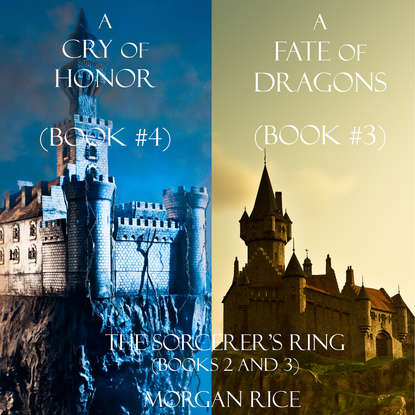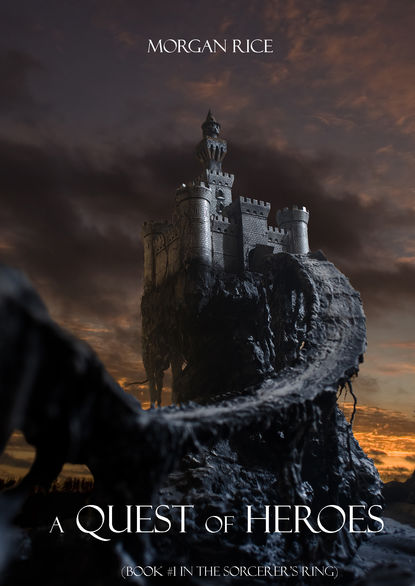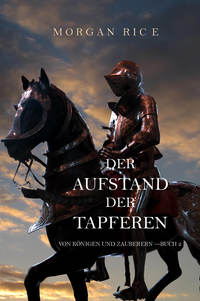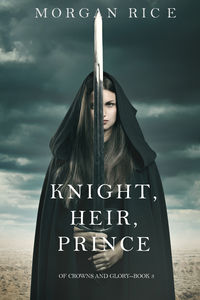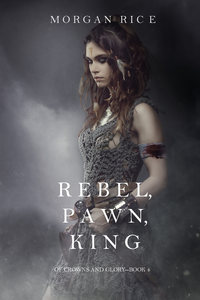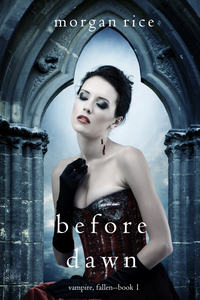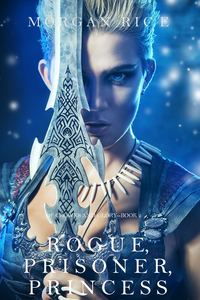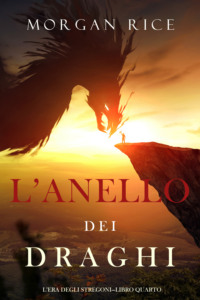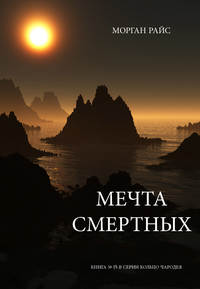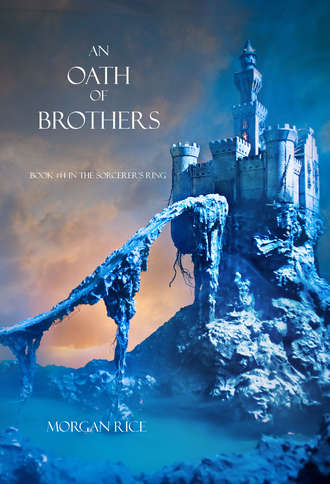
Полная версия
An Oath of Brothers
“Darius!” cried the voice.
Gwen looked over to see Sandara standing beside her, pointing to the battlefield.
“My brother!” she cried.
Gwen spotted Darius on the ground, on his back, and surrounded by Empire, closing in. Her heart leapt with concern, but she watched with great satisfaction as Kendrick rushed forward and held out his shield, saving Darius from an axe blow right before it hit his face.
Sandara cried out, and Gwen could see her relief, could see how much she loved her brother.
Gwendolyn reached over and took a bow from one of the soldiers standing guard beside her. She placed an arrow, pulling it back and taking aim.
“ARCHERS!” she yelled.
All around her a dozen of her archers took aim, pulling back their bows, awaiting her command.
“FIRE!”
Gwen shot her arrow high into the sky, over her men, and as she did, her dozen archers fired, too.
The volley landed on the thicket of remaining Empire soldiers, and cries rang out as a dozen soldiers dropped to their knees.
“FIRE!” she yelled again.
There came yet another volley; then another.
Kendrick and his men rushed in, killing all those men who had dropped to their knees from the arrows.
The Empire soldiers were forced to abandon attacking the villagers and instead turn their army around and confront Kendrick’s men.
This gave the villagers an opportunity. They let out a loud cry as they charged forward, stabbing in the back the Empire soldiers, who were now getting slaughtered from both sides.
The Empire soldiers, squeezed between two hostile forces, their numbers dwindling quickly, finally began to realize they were outmaneuvered. Their ranks of hundreds soon dwindled to dozens, and those who remained turned and tried to flee on foot, their zertas either killed or taken hostage.
They did not make it very far before they were hunted down and killed.
There arose a great shout of triumph from both the villagers and Gwendolyn’s men. They all gathered together, cheering, embracing each other as brothers, and Gwendolyn hurried down the slope and joined them, Krohn at her heels, bursting into the thick of it, men all around her, the smell of sweat and fear strong in the air, blood running fresh on the desert floor. Here, on this day, despite everything that had happened back in the Ring, Gwen felt a moment of triumph. It was a glorious victory here in the desert, the villagers and the exiles of the Ring joined together, united in defiance of the enemy.
The villagers had lost many good men, and Gwen had lost some of hers. But Darius, at least, Gwen was relieved to see, was alive, helped unsteadily to his feet.
Gwen knew the Empire had millions more men. She knew a day of reckoning would come.
But that day was not today. Today she had not made the wisest decision – but she had made the bravest one. The right one. She felt it was a decision her father would have made. She had chosen the hardest path. The path of what was right. The path of justice. The path of valor. And regardless of what might come, on this day she had lived.
She had really lived.
Chapter Three
Volusia stood on the stone balcony looking down, the cobblestone courtyard of Maltolis spread out below her, and far below she saw the sprawled out body of the Prince, lying there, unmoving, his limbs spread out in grotesque position. He seemed so far away from up here, so minuscule, so powerless, and Volusia marveled how, just moments before, he had been one of the most powerful rulers in the Empire. It struck home how frail life was, what an illusion power was – and most of all, how she, of infinite power, a true goddess now, wielded the power of life and death over anyone. Now, no one, not even a great prince, could stop her.
As she stood there, looking out, there arose all throughout the city the cries of his thousands of people, the touched citizens of Maltolis, moaning, their sound filling the courtyard and rising up like a plague of locusts. They wailed and screamed and slammed their heads against the stone walls; they leapt to the floor, like irate children, and tore the hair from their scalps. From the sight of them, Volusia mused, one would think that Maltolis had been a benevolent leader.
“OUR PRINCE!” one of them screamed, a scream echoed by many others as they all rushed forward, leaping onto the mad Prince’s body, sobbing and convulsing as they clutched it.
“OUR DEAR FATHER!”
Bells suddenly tolled all throughout the city, a long succession of ringing, echoing each other. Volusia heard a commotion and she raised her eyes and watched as hundreds of Maltolis’s troops marched hurriedly through the city gates, into the city courtyard, in rows of two, the portcullis rising to let them all in. They all aimed for Maltolis’s castle.
Volusia knew she had set in motion an event that would forever alter this city.
There came a sudden, insistent booming at the thick oak door to her chamber, making her jump. It was an incessant slamming, the sound of dozens of soldiers, armor clanging, slamming a battering ram into the thick oak door of the Prince’s chamber. Volusia, of course, had barred it, and the door, a foot thick, meant to withstand a siege, nonetheless buckled on its hinges, as the shouts of men came from the other side. With each slam it bent more.
Slam slam slam.
The stone chamber shook, and the ancient metal chandelier, hanging high above from a wooden beam, swayed wildly before it came crashing down to the floor.
Volusia stood there and watched it all calmly, expecting it all. She knew, of course, that they would come for her. They wanted vengeance – and they would never let her escape.
“Open the door!” shouted one of his generals.
She recognized his voice – the leader of Maltolis’s forces, a humorless man she had met briefly, with a low, raspy voice – an inept man but a professional soldier, and with two hundred thousand men at his disposal.
And yet Volusia stood there and faced the door calmly, unfazed, watching it patiently, waiting for them to crash it down. She could of course have opened it for them, but she would not give them the satisfaction.
Finally there came a tremendous crash, and the wooden door gave way, bursting off its hinges, and dozens of soldiers, armor clanging, rushed the room. Maltolis’ commander, donning his ornamental armor, and carrying the golden scepter that entitled him to command Maltolis’ army, led the way.
They slowed to a quick walk as they saw her standing there, alone, not trying to run. The commander, a deep scowl set on his face, marched right up to her and stopped abruptly a few feet away.
He glared down at her with hatred, and behind him, all his men stopped, well-disciplined, and awaited his command.
Volusia stood there calmly, staring back with a slight smile, and she realized her poise must have thrown them off, as he seemed flustered.
“What have you done, woman?” he demanded, clutching his sword. “You have come into our city as a guest and you have killed our ruler. The chosen one. The one who could not be killed.”
Volusia smiled back, and replied calmly:
“You are quite wrong, General,” she said. “I am the one who cannot be killed. As I have just proved here today.”
He shook his head in fury.
“How could you be so stupid?” he said. “Surely you must have known we would kill you and your men, that there is nowhere to run, no way to escape this place. Here, your few are surrounded by hundreds of thousands of ours. Surely you must have known that your act here today would amount to your death sentence – worse, your imprisonment and torture. We do not treat our enemies kindly, in case you haven’t noticed.”
“I have noticed indeed, General, and I admire it,” she replied. “And yet you will not lay a hand on me. None of your men will.”
He shook his head, annoyed.
“You are more foolish than I thought,” he said. “I bear the golden scepter. All of our armies will do as I say. Exactly as I say.”
“Will they?” she asked slowly, a smile on her face.
Slowly, Volusia turned and looked through the open-air window, down at the Prince’s body, now being hoisted upon the shoulders of lunatics and bore throughout the city like a martyr.
Her back to him, she cleared her throat and continued.
“I do not doubt, General,” she said, “that your forces are well-trained. Or that they will follow he who wields the scepter. Their fame precedes them. I know, too, that they are vastly greater than mine. And that there is no way to escape from here. But you see, I do not wish to escape. I do not need to.”
He looked back at her, baffled, and Volusia turned and looked out the window, combing the courtyard. In the distance she spotted Koolian, her sorcerer, standing there in the crowd, ignoring all the others and staring only up at her with his glowing green eyes and wart-lined face. He wore his black cloak, unmistakable in the crowd, his arms folded calmly, his pale face looking up at her, partially hidden behind the hood, awaiting her command. He stood there, the only one still and patient and disciplined in this chaotic city.
Volusia gave him a barely discernible nod, and she saw him immediately nod back.
Slowly, Volusia turned, a smile on her face, and faced the general.
“You can hand me the scepter now,” she said, “or I can kill you all and take it for myself.”
He looked back at her, astounded, then shook his head and, for the first time, smiled.
“I know delusional people,” he said. “I served one for years. But you… you are in a class of your own. Very well. If you wish to die that way, then so be it.”
He stepped up and drew his sword.
“I am going to enjoy killing you,” he added. “I wanted to from the moment I saw your face. All that arrogance – it is enough to make a man sick.”
He approached her, and as he did, Volusia turned and suddenly saw Koolian standing in the room beside her.
Koolian turned and stared at him, startled at his sudden appearance out of thin air. He stood there, stumped, clearly not expecting this, and clearly not knowing what to make of him.
Koolian pulled back his black hood and sneered back at him with his grotesque face, too pale, his white eyes, rolling back in his head, and he slowly raised his palms.
As he did, suddenly, the commander and all his men dropped to their knees. They shrieked and raised their hands to their ears.
“Make it stop!” he yelled.
Slowly, blood poured from their ears, and one by one, they dropped to the stone floor, unmoving.
Dead.
Volusia stepped up slowly, calmly, reached down, and grabbed the golden scepter from the commander’s dead hand.
She lifted it high and examined it in the light, admiring the weight of it, the way it glistened. It was a sinister thing.
She smiled wide.
It was even heavier than she had imagined.
* * *Volusia stood just beyond the moat, outside the city walls of Maltolis, her sorcerer, Koolian, her assassin, Aksan, and the commander of her Volusian forces, Soku, behind her, and she looked out at the vast Maltolisian army assembled before her. As far as she could see, the desert plains were filled with Maltolis’s men, two hundred thousand of them, a greater army than she’d ever laid eyes upon. Even for her, it was awe-inspiring.
They stood there patiently, leader-less, all looking to her, Volusia, who stood on a raised dais, facing them. The tension was thick in the air, and Volusia could sense that they were all waiting, pondering, deciding whether to kill her or to serve her.
Volusia looked out at them proudly, feeling her destiny before her, and slowly raised the golden scepter up overhead. She turned slowly, in every direction, so they could all see her, all see the scepter, glistening in the sun.
“MY PEOPLE!” she boomed out. “I am the Goddess Volusia. Your prince is dead. I am the one who bears the scepter now; I am the one you shall follow. Follow me, and you shall gain glory and riches and all your hearts’ desires. Stay here, and you will waste away and die in this place, under the shadow of these walls, under the shadow of a corpse of a leader who never loved you. You served him in madness; you shall serve me in glory, in conquest, and finally have the leader you deserve.”
Volusia raised the scepter higher, looking out at them, meeting their disciplined glances, feeling her destiny. She felt that she was invincible, that nothing could lie in her way, not even these hundreds of thousands of men. She knew that they, like all the world, would bow down to her. She saw it happening in her mind’s eye; after all, she was a goddess. She lived in a realm above men. What choice could they have?
As sure as she envisioned it, there came a slow clanking of armor, and one by one, all of the men before her took a knee, one after the other, a great clang of armor spreading across the desert, as they all knelt down to her.
“VOLUSIA!” they chanted softly, again and again.
“VOLUSIA!”
“VOLUSIA!”
Chapter Four
Godfrey felt the sweat pouring down the back of his neck as he huddled inside the group of slaves, trying not to stick to the middle and not be seen as they wound their way through the streets of Volusia. Another crack cut through the air, and Godfrey screamed out in pain as the tip of a whip lashed his behind. The slave beside him screamed much louder, as the whip was mostly meant for her. It lashed her solidly across the back, and she cried and stumbled forward.
Godfrey reached out and caught her before she collapsed, acting on impulse, knowing he was risking his life in doing so. She steadied herself and turned to him, panic and fear across her face, and as she saw him, her eyes opened wide in surprise. Clearly, she had not expected to see him, a human, light of skin, walking freely beside her, unshackled. Godfrey shook his head quickly and raised a finger to his mouth, praying she’d remain silent. Luckily, she did.
There came another crack of a whip and Godfrey looked over and saw taskmasters working their way up the convoy, mindlessly lashing slaves, clearly just wanting to keep their presence known. As he glanced back, he noticed, right behind him, the panicked faces of Akorth and Fulton, eyes darting about, and beside them, the calm, determined faces of Merek and Ario. Godfrey marveled that these two boys showed more composure and bravery than Akorth and Fulton, two grown, albeit drunk, men.
They marched and marched, and Godfrey sensed they were nearing their destination, wherever that might be. Of course, he could not let them arrive there: he had to make a move soon. He had accomplished his goal, had managed to get inside Volusia – but now he had to break free from this group, before they were all discovered.
Godfrey looked about, and noticed something he took to heart: the taskmasters were now congregating mostly at the front of this convoy of slaves. It made sense, of course. Given that all the slaves were shackled together, there was clearly nowhere they could run, and the taskmasters clearly felt no need to guard the rear. Aside from the lone taskmaster walking up and down the lines lashing them, there was no one to stop them from slipping out through the back of the convoy. They could escape, slip out silently into the streets of Volusia.
Godfrey knew they should act quickly; and yet his heart pounded every time he considered making the bold move. His mind told him to go, and yet his body kept hesitating, never quite working up the courage.
Godfrey still could not believe they were here, that they had really made it inside these walls. It was like a dream – yet a dream that kept getting worse. The buzz from the wine was wearing off, and the more it did, the more he realized what a profoundly bad idea all of this was.
“We have to get out of here,” Merek leaned forward and whispered urgently. “We have to make a move.”
Godfrey shook his head and gulped, sweat stinging his eyes. A part of him knew he was right; yet another part of him kept waiting for exactly the right moment.
“No,” he replied. “Not yet.”
Godfrey looked around and saw all manner of slaves shackled and dragged throughout the streets of Volusia, not only those of darker skin. It looked as if the Empire had managed to enslave all manner of race from all corners of the Empire – everyone and anyone who was not of the Empire race, everyone who did not share their glowing yellow skin, extra height, broad shoulders, and the small horns behind their ears.
“What are we waiting for?” Ario asked.
“If we run out into the open streets,” Godfrey said, “we might be too conspicuous. We might get caught, too. We must wait.”
“Wait for what?” Merek pressed, frustration in his voice.
Godfrey shook his head, stumped. He felt as if his plan were falling apart.
“I don’t know,” he said.
They turned yet another corner, and as they did, the entire city of Volusia opened up before them. Godfrey took in the sight, in awe.
It was the most incredible city he’d ever seen. Godfrey, as the son of a king, had been to big cities, and grand cities, and wealthy cities, and fortified cities. He had been to some of the most beautiful cities in the world. Few cities were able to rival the majesty of a Savaria, a Silesia, or most of all, King’s Court. He was not easily impressed.
But he had never seen anything like this. It was a combination of beauty, order, power, and wealth. Mostly wealth. The first thing that struck Godfrey were all the idols. Everywhere, placed throughout the city, were statues, idols to gods that Godfrey did not recognize. One appeared to be a god of the sea, another of the sky, another of the hills…. Everywhere were clusters of people, bowing down to them. In the distance, towering over the city, was a massive golden statue, rising up a hundred feet, of Volusia. Hordes of people bowed low before it.
The next thing that surprised Godfrey were the streets, paved with gold, shining, immaculate, everything fastidiously neat and clean. All the buildings were made of perfectly hewn stone, not a stone out of place. The city streets stretched forever, the city seeming to sprawl to the horizon. What took him aback even more were the canals and waterways, interlacing through the streets, sometimes in arches, sometimes in circles, carrying the azure tides of the ocean and acting as conduits, the oil which made this city flow. These waterways were packed with ornate golden vessels, making their way gently up and down them, crisscrossing through the streets.
The city was filled with light, reflecting off the harbor, dominated by the ever-present sound of crashing waves, as the city, shaped in a horseshoe, hugged the harbor shoreline, and waves crashed right up against its golden seawall. Between the sparkling light of the ocean, the rays of the two suns overhead, and the ever-present gold, Volusia positively dazzled the eyes. Framing it all, at the entrance to the harbor, were two towering pillars, nearly reaching to the sky, bastions of strength.
This city was built to intimidate, Godfrey realized, to exude wealth, and it did its job well. It was a city which exuded advances and civilization, and if Godfrey had not known of the cruelty of its inhabitants, it would have been a city he would have loved to live in himself. It was so different from anything the Ring had to offer. The cities of the Ring were built to fortify, protect, and defend. They were humble and understated, like their people. These cities of the Empire, on the other hand, were open, fearless, and build to project wealth. It made sense, Godfrey realized: after all, the Empire cities had no one from whom to fear an attack.
Godfrey heard a clamor up ahead, and as they twisted down an alleyway and turned a corner, suddenly, a great courtyard opened up before them, the harbor behind it. It was a wide, stone plaza, a major crossroads in the city, a dozen streets emerging from it in a dozen directions. All of this was visible in glimpses through a stone archway about twenty yards up ahead. Godfrey knew that once their entourage passed through it, they would all be out in the open, exposed, with everyone else. They wouldn’t be able to slip out.
Even more disconcerting, Godfrey saw slaves pouring in from all directions, all being ushered in by taskmasters, slaves from all corners of the Empire and all manner of races, all shackled, being dragged towards a high platform at the base of the ocean. Slaves stood up high on it, while rich Empire folk studied them and placed bids. It looked like an auction block.
A cheer rose up, and Godfrey watched as an Empire noble examined a slave’s jaw, a slave with white skin and long, stringy brown hair. The noble nodded in satisfaction, and a taskmaster came up and shackled the slave, as if concluding a business transaction. The taskmaster grabbed the slave by the back of the shirt and threw him, face-first, off the platform and down onto the ground. The man went flying, hitting the ground hard, and the crowd cheered in satisfaction, as several soldiers came forth and dragged him away.
Another entourage of slaves emerged from another corner of the city, and Godfrey watched as a slave was shoved forward, the largest slave, a foot taller than the others, strong and healthy. An Empire soldier raised his ax and the slave braced himself.
But the taskmaster chopped the shackles, the sound of metal hitting stone ringing through the courtyard.
The slave stared at the taskmaster, confused.
“Am I free?” he asked.
But several soldiers rushed forward, grabbed the slave’s arms, and dragged him to the base of a large golden statue at the base of the harbor, another statue of Volusia, her finger pointed to the sea, waves crashing at her feet.
The crowd gathered close as the soldiers held the man down, his head pushed down, face-first, on the statue’s foot.
“NO!” the man screamed.
The Empire soldier stepped forward and wielded his ax again, and this time, decapitated the man.
The crowd shouted in delight, and they all dropped to their knees and bowed down to the ground, worshipping the statue as the blood ran over its feet.
“A sacrifice to our great goddess!” called out the soldier. “We dedicate to you the first and choicest of our fruits!”
The crowd cheered again.
“I don’t know about you,” came Merek’s voice in Godfrey’s ear, urgent, “but I’m not going to be sacrificed to some idol. Not today.”
There came another crack of a whip, and Godfrey could see the entranceway getting closer. His heart pounded as he considered his words, and knew Merek was right. He knew he had to do something – and fast.
Godfrey turned at a sudden movement. From the corner of his eye, he saw five men, wearing bright-red cloaks and hoods, walking quickly down the street in the other direction. He noticed they had white skin, pale hands and faces, saw that they were smaller than the hulking brutes of the Empire race, and immediately, he knew who they were: Finians. One of Godfrey’s great skills was being able to commit tales to memory even while drunk, and he had listened thoroughly over the past moon as Sandara’s people had recounted stories of Volusia many times over the fire. He had listened to their descriptions of the city, of its history, of all the races that were enslaved, and of the only free race: the Finians. The only exception to the rule. They had been allowed to live free, generation after generation, because they were too rich to kill, too connected, too able to make themselves indispensable, and to broker in the trading of power. They were easily noticeable, he had been told, by their too-pale skin, by their bright red cloaks and fiery red hair.
Godfrey had an idea. It was now or never.
“MOVE!” he called out to his friends.
Godfrey turned and leapt into motion, running out from the back of the entourage, to the baffled looks of the shackled slaves. The others, he was relieved to see, followed on his heels.
Godfrey ran, huffing, weighed down by the heavy sacks of gold at his waist, as were the others, jingling as they went. Up ahead he spotted the five Finians turning down a narrow alleyway; he ran right for them, and only prayed they could turn the corner undetected from Empire eyes.
Godfrey, his heart slamming in his ears, turned the corner and as he saw the Finians before him, without thinking he leapt into the air and pounced on the group from behind.


